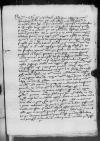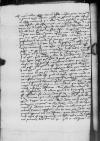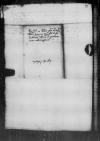Heri sub noctem redditis mihi litteris Reverendissimae Dominationis Vestrae ad candelam illas legi non sine admiratione, nequaquam enim arbitrabar tam esse infida hominum ingenia, ut non facillime reperirentur, quibus se Reverendissima Dominatio Vestra crederet. Quae res vel sola superinscribed⌈solasola superinscribed⌉ omnem consiliorum meorum rationem perturbat. Sed, ut Reverendissima Dominatio Vestra rei totius summam accipiat, videbam futurum, ut si Sigismund I Jagiellon (Zygmunt I) (*1467 – †1548), King of Poland and Grand Duke of Lithuania (1506-1548); Duke of Głogów (Glogau) (1499-1506), Duke of Opava (1501-1506), Governor of Silesia (1504-1506); son of King Kazimierz IV Jagiellon and Elisabeth of Austria⌊regia maiestasSigismund I Jagiellon (Zygmunt I) (*1467 – †1548), King of Poland and Grand Duke of Lithuania (1506-1548); Duke of Głogów (Glogau) (1499-1506), Duke of Opava (1501-1506), Governor of Silesia (1504-1506); son of King Kazimierz IV Jagiellon and Elisabeth of Austria⌋ regeret Ermland Chapter cathedral chapter based in Frauenburg (Frombork, Varmia)⌊capitulumErmland Chapter cathedral chapter based in Frauenburg (Frombork, Varmia)⌋, ut Vestram Reverendissimam Dominationem, cui iam semel hic episcopatus destinatus sit, eligat, id eam s apud ipsum capitulum haberetur, perinde ac si eius maiestas unum tantum nominasset, et cum nihil magis perniciosum plerisque videatur, quam ut haec fenestra aperiatur contra pacta on the margin⌈pactapacta on the margin⌉ facile in hac re admittatur praetextus non laesorum pactorum, quin semper maneat species nominati unius, et exemplum hoc sit in posteras electiones manaturum, metuebam ne, si ad tempus electionis talia contingerent, capitulum suspensa electione totum negotium esset remissurum ad regem nec processurum nisi iuxta pacta quattuor nominatis obque eam dilationem esse periclitaturas res Reverendissimae Dominationis Vestrae. Deoque his ambagibus utendum consului, ut videlicet omnino nominationes non abessent, si res posceret illas edi, utque regia maiestas liberum faceret capitulo absque nominationibus procedere, ne unius nominati relinqueretur cavillam.
Sed quoniam haec quoque res multos habet recessus et pericula, ut nunc ex Reverendissimae Dominationis Vestrae litteris intellego, prope in hanc sententiam devenio, ut putem tutissimum esse, ut via regia procedatur quattuor nominatis, sed his, qui sunt nominabiles, ne iterum Ermland Chapter cathedral chapter based in Frauenburg (Frombork, Varmia)⌊capituloErmland Chapter cathedral chapter based in Frauenburg (Frombork, Varmia)⌋ causa detur remittendi negotii. Satis enim mihi videor certus duos illos, in quorum fide Reverendissima Dominatio Vestra stat, nihil mutaturos a priori voluntate, de quo Dominatio Vestra Reverendissima non dubitet, posset autem vacillantes efficere, si viderent aliquid ipsorum opinione contra iura ecclesiae geri et exemplum perniciosum relinqui. Videtur autem iam nec ab his, qui adversarii putabantur, periculum esse, quandoquidem herbam iam porrigant et sui in next line⌈suisui in next line⌉ conciliandi modos quaerant, nec video, quid possint,  AWWO, AB, D. 2, f. 44v etiamsi maxime velint, obesse.
AWWO, AB, D. 2, f. 44v etiamsi maxime velint, obesse.
Non tamen discedo a consilio priori, ut Sigismund I Jagiellon (Zygmunt I) (*1467 – †1548), King of Poland and Grand Duke of Lithuania (1506-1548); Duke of Głogów (Glogau) (1499-1506), Duke of Opava (1501-1506), Governor of Silesia (1504-1506); son of King Kazimierz IV Jagiellon and Elisabeth of Austria⌊maiestas regiaSigismund I Jagiellon (Zygmunt I) (*1467 – †1548), King of Poland and Grand Duke of Lithuania (1506-1548); Duke of Głogów (Glogau) (1499-1506), Duke of Opava (1501-1506), Governor of Silesia (1504-1506); son of King Kazimierz IV Jagiellon and Elisabeth of Austria⌋ in primis temptet inducere Ermland Chapter cathedral chapter based in Frauenburg (Frombork, Varmia)⌊capitulumErmland Chapter cathedral chapter based in Frauenburg (Frombork, Varmia)⌋, ut perseveret in priori consensu et absque nominationibus, si ei videtur, denuo postulet et cetera, ut ante consului, sed absque minis. Nec improbo iudicium Dominationis Vestrae Reverendissimae, ut ea res ad Ermland Chapter cathedral chapter based in Frauenburg (Frombork, Varmia)⌊capitulumErmland Chapter cathedral chapter based in Frauenburg (Frombork, Varmia)⌋ referenda committatur domino Alexander Sculteti (Scholtcze) (*ca. 1485 – †1570), doctor of canon law, cartographer, historian and friend of Copernicus; accused by Dantiscus and Stanisław Hozjusz (Hosius) of Sacramentarian heresy, in 1540 banished by King Sigismund I Jagiellon; in 1541 imprisoned by the Inquisition in Rome; after release from prison in 1544 he stayed in Rome for the rest of his life; 1509-1516 notary at the Roman Curia; 1519-1541 Canon of Ermland (Warmia), 1530-1539 Chancellor of the Ermland Chapter; 1536-1538 administrator of the komornictwo of Mehlsack (Melzak, today Pieniężno) (KOPICZKO 2, p. 299; SBKW, p. 219-220)⌊AlexandroAlexander Sculteti (Scholtcze) (*ca. 1485 – †1570), doctor of canon law, cartographer, historian and friend of Copernicus; accused by Dantiscus and Stanisław Hozjusz (Hosius) of Sacramentarian heresy, in 1540 banished by King Sigismund I Jagiellon; in 1541 imprisoned by the Inquisition in Rome; after release from prison in 1544 he stayed in Rome for the rest of his life; 1509-1516 notary at the Roman Curia; 1519-1541 Canon of Ermland (Warmia), 1530-1539 Chancellor of the Ermland Chapter; 1536-1538 administrator of the komornictwo of Mehlsack (Melzak, today Pieniężno) (KOPICZKO 2, p. 299; SBKW, p. 219-220)⌋ vel litteris illi datis scribatur, ut fides adsit.
Si igitur Reverendissimae Dominationi Vestrae non satis tuta videntur priora consilia mea, non displicent, quae Dominatio Vestra Reverendissima scribit et quae iam addidi, nam omnino ad novam hidden by binding⌈[vam]vam hidden by binding⌉ postulationem veniendum est, sine qua nec a papa Dominatio Vestra Reverendissima promovebitur. Hanc vero timeo non processuram in capitulo, nisi visis nominationibus, nec video in his quod periculum esse possit. Ut ego praeterear, iam ante dixi mihi videri in rem esse, quamquam, etiamsi eligerer, numquam sum consensurus in damnum Dominationis Vestrae Reverendissimae, quod candide pronuntio. Si domino Alexander Sculteti (Scholtcze) (*ca. 1485 – †1570), doctor of canon law, cartographer, historian and friend of Copernicus; accused by Dantiscus and Stanisław Hozjusz (Hosius) of Sacramentarian heresy, in 1540 banished by King Sigismund I Jagiellon; in 1541 imprisoned by the Inquisition in Rome; after release from prison in 1544 he stayed in Rome for the rest of his life; 1509-1516 notary at the Roman Curia; 1519-1541 Canon of Ermland (Warmia), 1530-1539 Chancellor of the Ermland Chapter; 1536-1538 administrator of the komornictwo of Mehlsack (Melzak, today Pieniężno) (KOPICZKO 2, p. 299; SBKW, p. 219-220)⌊AlexandroAlexander Sculteti (Scholtcze) (*ca. 1485 – †1570), doctor of canon law, cartographer, historian and friend of Copernicus; accused by Dantiscus and Stanisław Hozjusz (Hosius) of Sacramentarian heresy, in 1540 banished by King Sigismund I Jagiellon; in 1541 imprisoned by the Inquisition in Rome; after release from prison in 1544 he stayed in Rome for the rest of his life; 1509-1516 notary at the Roman Curia; 1519-1541 Canon of Ermland (Warmia), 1530-1539 Chancellor of the Ermland Chapter; 1536-1538 administrator of the komornictwo of Mehlsack (Melzak, today Pieniężno) (KOPICZKO 2, p. 299; SBKW, p. 219-220)⌋ committetur hidden by binding⌈[tur]tur hidden by binding⌉ dicta legatio, posset Sigismund I Jagiellon (Zygmunt I) (*1467 – †1548), King of Poland and Grand Duke of Lithuania (1506-1548); Duke of Głogów (Glogau) (1499-1506), Duke of Opava (1501-1506), Governor of Silesia (1504-1506); son of King Kazimierz IV Jagiellon and Elisabeth of Austria⌊regia maiestasSigismund I Jagiellon (Zygmunt I) (*1467 – †1548), King of Poland and Grand Duke of Lithuania (1506-1548); Duke of Głogów (Glogau) (1499-1506), Duke of Opava (1501-1506), Governor of Silesia (1504-1506); son of King Kazimierz IV Jagiellon and Elisabeth of Austria⌋ ad partem per cubicularium litteris clausis, ut nuper factum est, nominationes mittere, qui etiam occulte posset apud Reverendissimam Dominationem <Vestram> esse, donec res posceret illum prodire.
Dominatio Vestra Reverendissima, quae mores et affectiones illius curiae melius me novit, haec pro suo iudicio moderetur. Mihi certe videtur res extra periculum esse, quod ad Ermland Chapter cathedral chapter based in Frauenburg (Frombork, Varmia)⌊capitulumErmland Chapter cathedral chapter based in Frauenburg (Frombork, Varmia)⌋ attinet, modo ita res instituatur, nec ne nimis exquisitis modis perturbentur aut in suspicionem adducantur conscientiae quorundam, quae in nullo magis impingunt, quam si in rem inciderint, quae videatur ecclesiae iuribus in futurum offutura. Domino Alexander Sculteti (Scholtcze) (*ca. 1485 – †1570), doctor of canon law, cartographer, historian and friend of Copernicus; accused by Dantiscus and Stanisław Hozjusz (Hosius) of Sacramentarian heresy, in 1540 banished by King Sigismund I Jagiellon; in 1541 imprisoned by the Inquisition in Rome; after release from prison in 1544 he stayed in Rome for the rest of his life; 1509-1516 notary at the Roman Curia; 1519-1541 Canon of Ermland (Warmia), 1530-1539 Chancellor of the Ermland Chapter; 1536-1538 administrator of the komornictwo of Mehlsack (Melzak, today Pieniężno) (KOPICZKO 2, p. 299; SBKW, p. 219-220)⌊AlexandroAlexander Sculteti (Scholtcze) (*ca. 1485 – †1570), doctor of canon law, cartographer, historian and friend of Copernicus; accused by Dantiscus and Stanisław Hozjusz (Hosius) of Sacramentarian heresy, in 1540 banished by King Sigismund I Jagiellon; in 1541 imprisoned by the Inquisition in Rome; after release from prison in 1544 he stayed in Rome for the rest of his life; 1509-1516 notary at the Roman Curia; 1519-1541 Canon of Ermland (Warmia), 1530-1539 Chancellor of the Ermland Chapter; 1536-1538 administrator of the komornictwo of Mehlsack (Melzak, today Pieniężno) (KOPICZKO 2, p. 299; SBKW, p. 219-220)⌋ videntur haec ... illegible⌈...... illegible⌉ non propalanda, ne videns Reverendissimam Dominationem Vestram huius consilii auctorem hidden by binding⌈[rem]rem hidden by binding⌉ esse offendatur, sed admonendus est, ut in regressu ad Reverendissimam Dominationem Vestram divertat, quo melius possit apud Reverendissima Dominatio Vestra apud illum agenda derigere ex re nata.
Bene caderet res, si Sigismund I Jagiellon (Zygmunt I) (*1467 – †1548), King of Poland and Grand Duke of Lithuania (1506-1548); Duke of Głogów (Glogau) (1499-1506), Duke of Opava (1501-1506), Governor of Silesia (1504-1506); son of King Kazimierz IV Jagiellon and Elisabeth of Austria⌊regia maiestasSigismund I Jagiellon (Zygmunt I) (*1467 – †1548), King of Poland and Grand Duke of Lithuania (1506-1548); Duke of Głogów (Glogau) (1499-1506), Duke of Opava (1501-1506), Governor of Silesia (1504-1506); son of King Kazimierz IV Jagiellon and Elisabeth of Austria⌋ Sandomierz (Sandomiria), town in southeastern Poland, Małopolska, on the Vistula river⌊SandomiriaeSandomierz (Sandomiria), town in southeastern Poland, Małopolska, on the Vistula river⌋ cunctaretur, ut illuc liceret nuntio nostro illum adire, maxime si adhaereret curiae Jan Chojeński (*1486 – †1538), 1523 royal secretary, 1526-1537 Grand Secretary; 1531-1535 Bishop of Przemyśl, 1535-1537 Bishop of Płock, 1537-1538 Bishop of Cracow, 1537-1538 Grand Chancellor of the Crown (WYCZAŃSKI 1990, p. 248-249; PSB 3, p. 396-399)⌊dominus PlocensisJan Chojeński (*1486 – †1538), 1523 royal secretary, 1526-1537 Grand Secretary; 1531-1535 Bishop of Przemyśl, 1535-1537 Bishop of Płock, 1537-1538 Bishop of Cracow, 1537-1538 Grand Chancellor of the Crown (WYCZAŃSKI 1990, p. 248-249; PSB 3, p. 396-399)⌋ cancellarius, quem ante audieram Cracow (Kraków, Cracovia), city in southern Poland, Małopolska, on the Vistula river, from 1038 capital of the Kingdom of Poland⌊CracoviaeCracow (Kraków, Cracovia), city in southern Poland, Małopolska, on the Vistula river, from 1038 capital of the Kingdom of Poland⌋ recessurum. Sine hoc viro, meo iudicio, vix quicquam agemus tuto aut constanter, quare adeundus semper mihi visus est atque requirenda Jan Chojeński (*1486 – †1538), 1523 royal secretary, 1526-1537 Grand Secretary; 1531-1535 Bishop of Przemyśl, 1535-1537 Bishop of Płock, 1537-1538 Bishop of Cracow, 1537-1538 Grand Chancellor of the Crown (WYCZAŃSKI 1990, p. 248-249; PSB 3, p. 396-399)⌊eiusJan Chojeński (*1486 – †1538), 1523 royal secretary, 1526-1537 Grand Secretary; 1531-1535 Bishop of Przemyśl, 1535-1537 Bishop of Płock, 1537-1538 Bishop of Cracow, 1537-1538 Grand Chancellor of the Crown (WYCZAŃSKI 1990, p. 248-249; PSB 3, p. 396-399)⌋ consilia vel a nuntio capitulari, vel privatim litteris Dominationis Vestrae Reverendissimae, quod et nunc sentio, nam  AWWO, AB, D. 2, f. 45r Cracow (Kraków, Cracovia), city in southern Poland, Małopolska, on the Vistula river, from 1038 capital of the Kingdom of Poland⌊CracoviaeCracow (Kraków, Cracovia), city in southern Poland, Małopolska, on the Vistula river, from 1038 capital of the Kingdom of Poland⌋ apud apud solum Jan Karnkowski (*ca. 1472 – †1537), at least from 1497 scribe at the royal chancellery; before 1500-02-29 Cracow Canon; at least in 1506-1527 royal secretary; between 1503 and 1509 Provost in Skalbmierz; 1510 Scholastic in Sandomierz; 1510 Poznań Canon; ca. 1513 parish priest in Piotrków; 1523 Canon of St. George at the Wawel; before 1525 Płock Canon; 1525 - of Gniezno; before 1535 - at the Cracow Cathedral; 1527 Bishop Elect of Przemyśl; 1531 Bishop of Włocławek; 1510,1514, 1516, 1517, 1518, 1524, 1525 royal envoy to Hungary; 1514, 1515,1523 - to local diets (WYCZAŃSKI 1990, p. 254)⌊episcopum VladislaviensemJan Karnkowski (*ca. 1472 – †1537), at least from 1497 scribe at the royal chancellery; before 1500-02-29 Cracow Canon; at least in 1506-1527 royal secretary; between 1503 and 1509 Provost in Skalbmierz; 1510 Scholastic in Sandomierz; 1510 Poznań Canon; ca. 1513 parish priest in Piotrków; 1523 Canon of St. George at the Wawel; before 1525 Płock Canon; 1525 - of Gniezno; before 1535 - at the Cracow Cathedral; 1527 Bishop Elect of Przemyśl; 1531 Bishop of Włocławek; 1510,1514, 1516, 1517, 1518, 1524, 1525 royal envoy to Hungary; 1514, 1515,1523 - to local diets (WYCZAŃSKI 1990, p. 254)⌋ rem tractare, praesertim praesente Bona Sforza (*1494 – †1557), Queen of Poland and Grand Duchess of Lithuania (1518-1557); the second wife of Sigismund I Jagiellon; Duchess of Bari and Rossano; daughter of Gian Galeazzo Sforza of Milan and Isabella of Aragon⌊reginaBona Sforza (*1494 – †1557), Queen of Poland and Grand Duchess of Lithuania (1518-1557); the second wife of Sigismund I Jagiellon; Duchess of Bari and Rossano; daughter of Gian Galeazzo Sforza of Milan and Isabella of Aragon⌋, nescio rectene sit successurum.
AWWO, AB, D. 2, f. 45r Cracow (Kraków, Cracovia), city in southern Poland, Małopolska, on the Vistula river, from 1038 capital of the Kingdom of Poland⌊CracoviaeCracow (Kraków, Cracovia), city in southern Poland, Małopolska, on the Vistula river, from 1038 capital of the Kingdom of Poland⌋ apud apud solum Jan Karnkowski (*ca. 1472 – †1537), at least from 1497 scribe at the royal chancellery; before 1500-02-29 Cracow Canon; at least in 1506-1527 royal secretary; between 1503 and 1509 Provost in Skalbmierz; 1510 Scholastic in Sandomierz; 1510 Poznań Canon; ca. 1513 parish priest in Piotrków; 1523 Canon of St. George at the Wawel; before 1525 Płock Canon; 1525 - of Gniezno; before 1535 - at the Cracow Cathedral; 1527 Bishop Elect of Przemyśl; 1531 Bishop of Włocławek; 1510,1514, 1516, 1517, 1518, 1524, 1525 royal envoy to Hungary; 1514, 1515,1523 - to local diets (WYCZAŃSKI 1990, p. 254)⌊episcopum VladislaviensemJan Karnkowski (*ca. 1472 – †1537), at least from 1497 scribe at the royal chancellery; before 1500-02-29 Cracow Canon; at least in 1506-1527 royal secretary; between 1503 and 1509 Provost in Skalbmierz; 1510 Scholastic in Sandomierz; 1510 Poznań Canon; ca. 1513 parish priest in Piotrków; 1523 Canon of St. George at the Wawel; before 1525 Płock Canon; 1525 - of Gniezno; before 1535 - at the Cracow Cathedral; 1527 Bishop Elect of Przemyśl; 1531 Bishop of Włocławek; 1510,1514, 1516, 1517, 1518, 1524, 1525 royal envoy to Hungary; 1514, 1515,1523 - to local diets (WYCZAŃSKI 1990, p. 254)⌋ rem tractare, praesertim praesente Bona Sforza (*1494 – †1557), Queen of Poland and Grand Duchess of Lithuania (1518-1557); the second wife of Sigismund I Jagiellon; Duchess of Bari and Rossano; daughter of Gian Galeazzo Sforza of Milan and Isabella of Aragon⌊reginaBona Sforza (*1494 – †1557), Queen of Poland and Grand Duchess of Lithuania (1518-1557); the second wife of Sigismund I Jagiellon; Duchess of Bari and Rossano; daughter of Gian Galeazzo Sforza of Milan and Isabella of Aragon⌋, nescio rectene sit successurum.
Habet Reverendissima Dominatio Vestra, quid in hac rerum ambiguitate sentiam, tamen consuluisse mihi videor, ita ut arbitrer minus ambiguas futuras. Dominatio Vestra Reverendissima sequatur, quod sibi optimum videbitur. Experietur me semper obsequentem et sibi addictissimum.
Remitto communicatas novitates, de quibus ago gratias, meque unice commendo in sinum et amorem Reverendissimae Dominationis Vestrae, quam nobis servet Deus felicem et incolumem.
 AWWO, AB, D. 2, f. 44r
AWWO, AB, D. 2, f. 44r  AWWO, AB, D. 2, f. 44v etiamsi maxime velint, obesse.
AWWO, AB, D. 2, f. 44v etiamsi maxime velint, obesse.
 AWWO, AB, D. 2, f. 45r
AWWO, AB, D. 2, f. 45r 


